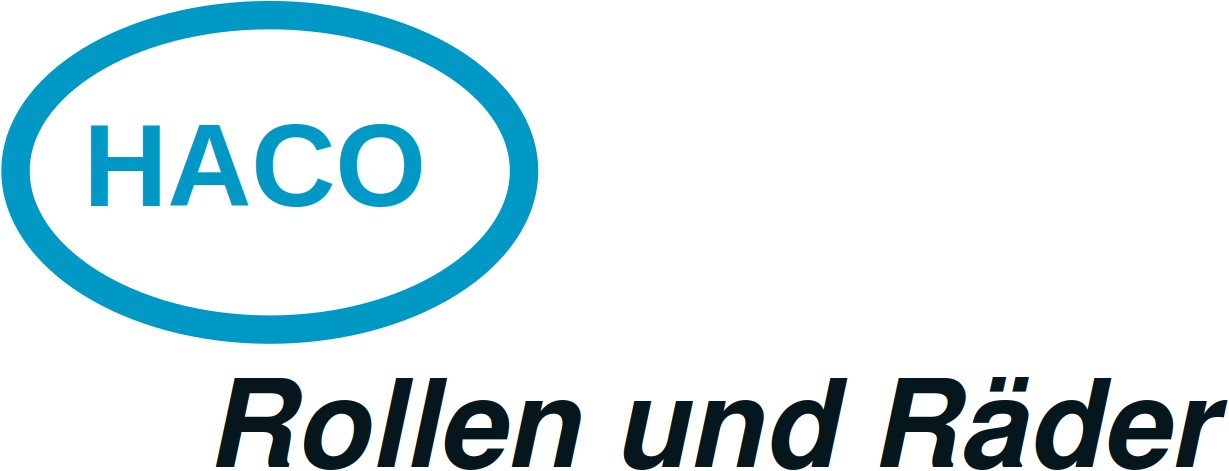HACO production
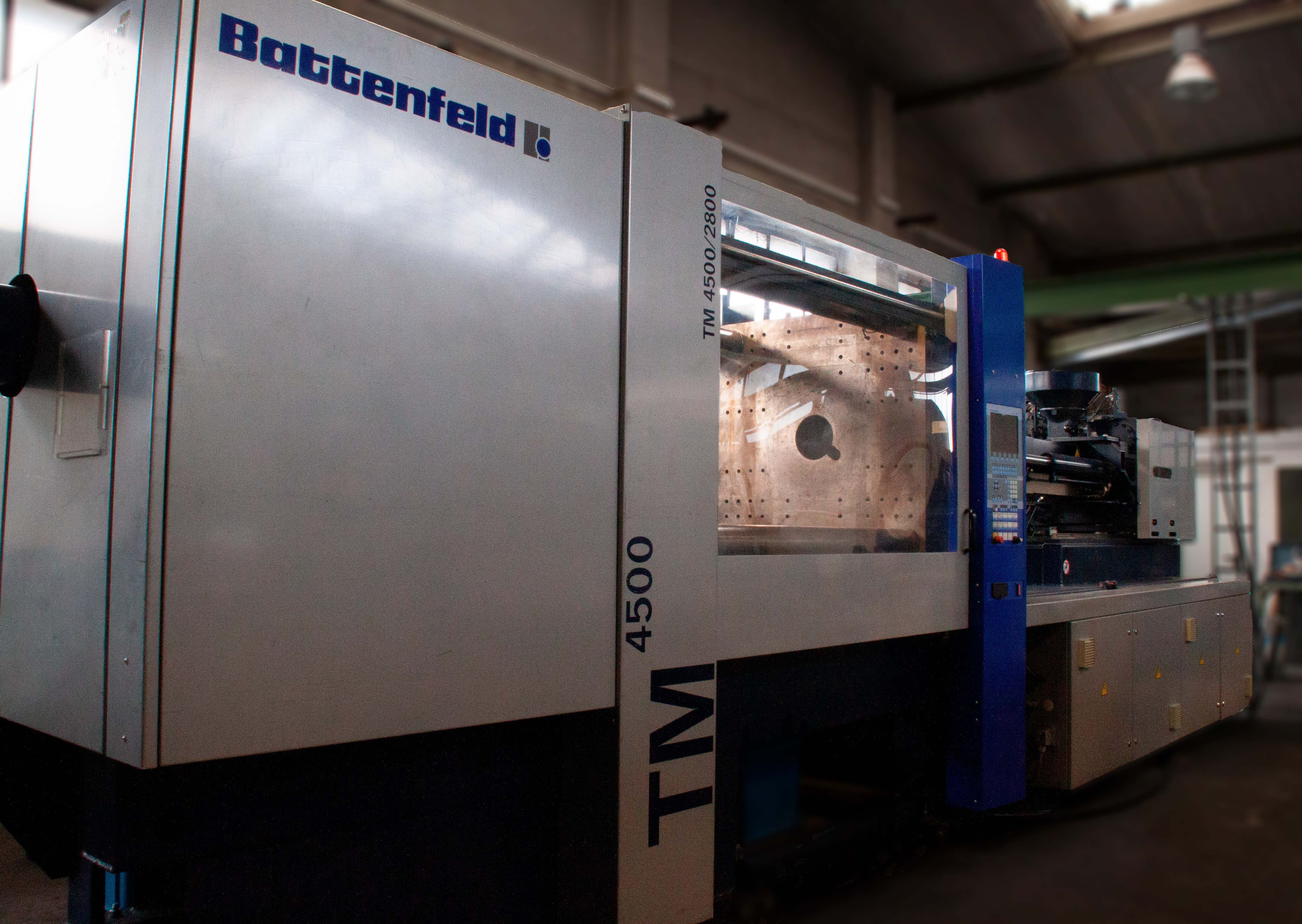
HACO takes care of the entire production process of wheels, forks and rims. We purchase the rolls of sheet steel ourselves and use our own machines to punch the forks out of them. This punched sheet is then bent and modelled using machines. HACO likewise makes the plastic wheels using pressing and injection moulding machines with handmade moulds. The parts are assembled and finished by hand, with the utmost precision.
Forks
Forks are punched out of rolls of sheet steel. Once the flat shape emerges from the machine, a mould is used to bend it into the right shape. Mounting holes are drilled into the shape to allow the wheel to be attached, as well as swivel brackets and a mounting plate if necessary. The forks are manually checked for deviations or defects. Afterwards, the forks are galvanised or coated depending on the customer's preferences, after which they are cleaned. The various body parts (such as the SLO seal, swivel bracket or attachment pins) are manually assembled and attached to the fork. That way, a wheel with a fork can easily be attached to the end product in various ways. 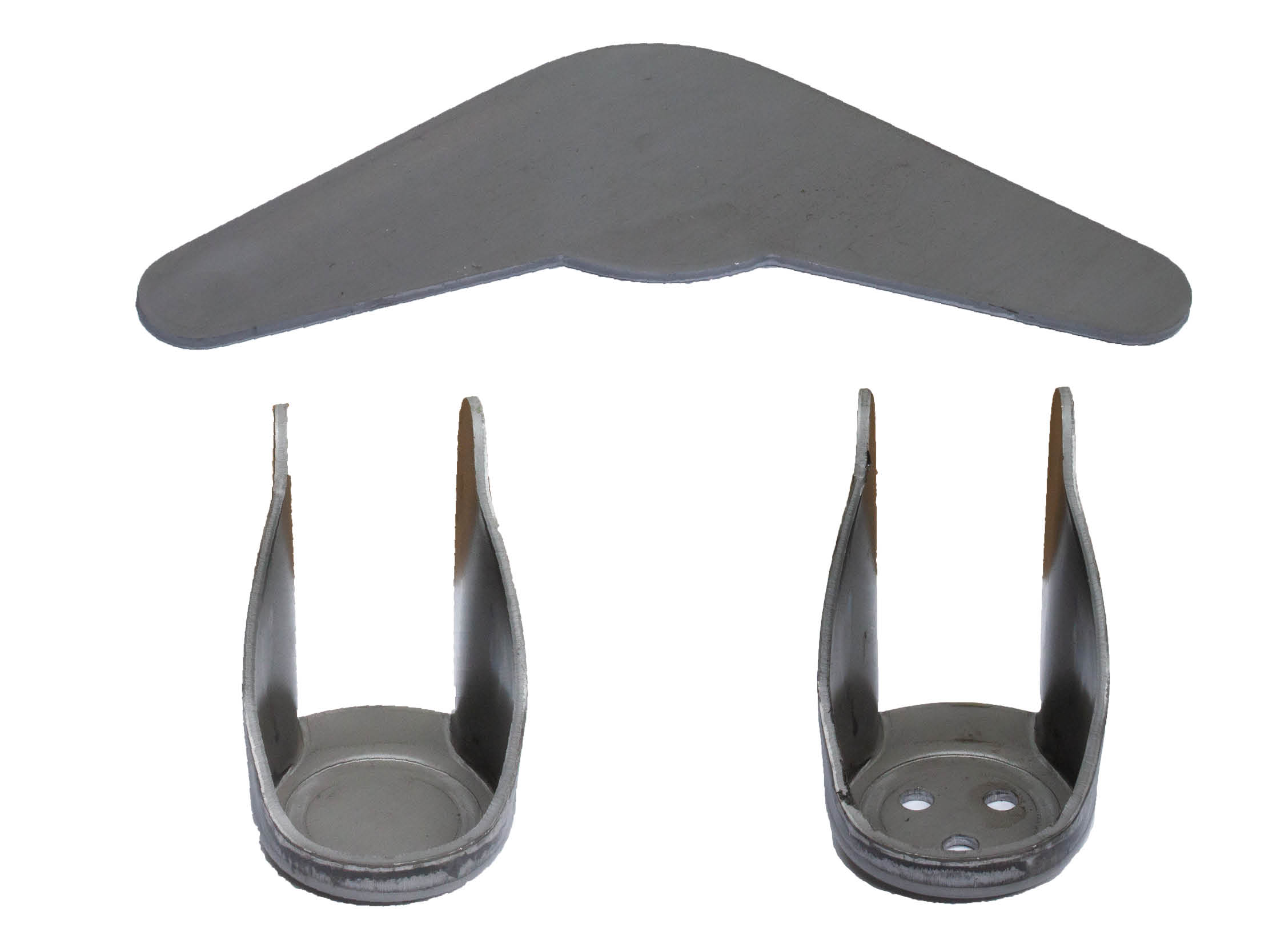
SLO seal
HACO wheels feature the HACO-developed mounting plate with SLO seal. This mounting device is punched from sheet steel and then manually assembled. The head with the ring is welded to the plate by the welder. The mounting holes are positioned manually and punched out using a machine. The springs, bearings and gears are manually placed before the machine presses the top cover onto the product. 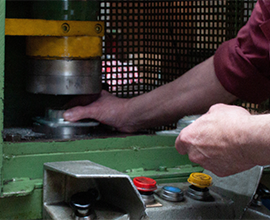
Wheels
The HACO factory has more than 100,000 moulds for pressing plastic wheels. These moulds were specifically developed for HACO wheels and are all unique. The steel moulds were cut by hand and tailored to the production of top-quality wheels. The moulds are placed in the machines, which press plastic granules into them under high temperatures. The by-products of this process are cut off and recycled. The HACO assortment also includes heat-resistant wheels and stainless-steel wheels. Our standard assortment also includes cast-iron wheels and flange wheels, which are produced internally. Nowadays, rubber wheels are produced externally. However, handmade HACO moulds are still used for this process. A short, external production line that still meets the high quality standards of HACO. 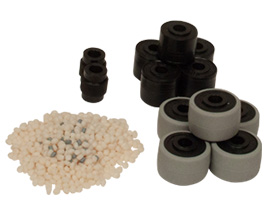
Rims
Wheels with rubber tires require a special, suitable rim. The steel rims are pressed from sheet steel, shaped and then finished. If necessary, the steel rims are equipped with additional spokes and thickened areas to give the wheel increased durability and stability. The plastic rims are made using pressing machines. They are then cut to size by hand. This process is likewise subject to strict standards. Any deviations are unacceptable. A deviating rim does not guarantee safety and is immediately removed from the process.
Manual labour is still common at HACO. HACO employees regularly check the products by hand and adjust the assembly based on the customer's needs and preferences. For example, extra rubber strips can be placed between the brakes, and forks can be bent into slightly different shapes if necessary. If someone has an idea for a new improvement to a product, we develop a trial wheel. In some cases, we develop new moulds to explore a concept in greater depth. Thanks to our manual approach and checks, HACO maintains a remarkably high, unique quality standard. Nothing leaves the building before it is subjected to the expert scrutiny of our employees.

